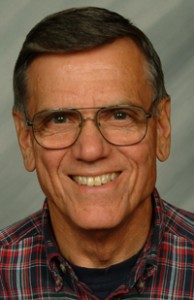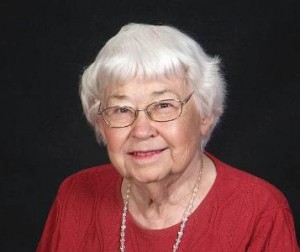Probe me, O LORD, and try me,
test my kidneys and heart;
for my eyes are on your steadfast love;
I have set my course by it.
Psalm 26:2-3 (TANAKH)
~~~~~~~~~~~~~~~~~~~~~~~~~~~~~~~~~~~~~~~~~~~~~~~~~~~~~~~~~
 One of my favorite “styles” of worship is that of the black church. The energy, emotion, and enthusiasm are palpable, and time flies through what would normally be seen as a “long” worship service. As someone who often stays in his head too much, I enjoy the opportunity to feel for a change.
One of my favorite “styles” of worship is that of the black church. The energy, emotion, and enthusiasm are palpable, and time flies through what would normally be seen as a “long” worship service. As someone who often stays in his head too much, I enjoy the opportunity to feel for a change.
I vividly remember my first such experience on Palm Sunday of 1998 as I helped chaperon a group of 6th grade confirmands with Rev. Jill Jackson-Sears to St. Luke “Community” United Methodist in Dallas, Texas. Dr. Zan Holmes was still the Senior Pastor there at the time. I still remember a major point of his sermon from that day, it was so good. Except for only 3 years, I never failed to return with a confirmation class each year for them to experience such an important legacy within the church.
A few years ago when I took a group, they had a guest preacher. I don’t remember his name or why he was preaching that day. I do remember that he was not United Methodist but from a more conservative denomination. I remember thinking that was kind of odd, but I didn’t concern myself with it other than I hoped he’d preach as well as one of the church’s “staff preachers.”
As usually happens when attending such a service, I was quickly drawn into the impassioned sermon. As he got going, so did I. As he got more excited, so did I. As he got to moving around, so did I. The guy had me in the palm of his hand, and I was a willing participant in the call and response style preaching. About 2/3 of the way through the sermon, I finally engaged my brain for the first time. “What did he just say?” I asked myself incredulously. I began questioning much of what he had said up to that point, and it was so NOT Methodist nor anything related to my own personal theology. Yet, my emotions had brought me along for a ride that my mind would have normally said, “No!” to.
For the first time, I felt like I had experienced being a part of the so-called “mob mentality,” and I didn’t like it. No matter what my “heart” was saying in my receiving of the wacked message in the beginning, it was still WRONG.
As a person too often stuck in my head, I’m left with an uncomfortable tension of how to properly involve my emotions in my life and in my life of faith.
~~~~~~~~~~~~~~~~~~~~~~~~~~~~~~~~~~~~~~~~~~~~~~~~~~~~~~~~~
Although it was certainly not my favorite of the Short Term Disciple Bible Studies, studying along with the Invitation to Psalms
study at First United Methodist in Wichita Falls, Texas was insightful in a number of ways – especially by using The New Interpreter’s Study Bible
and the TANAKH
translation of the Psalms.
One such insight can be seen in Psalm 26:2-3, which opened this post. More than likely, you’ve never seen it translated that way. You are probably more familiar with something like this:
Prove me, O Lord, and try me;
test my heart and mind.
For your steadfast love is before my eyes,
and I walk in faithfulness to you.
Psalm 26:2-3 (NRSV)
Yet,the second line is literally “kidneys and heart” – in that order. Say what?!
For ancient Hebrews, the kidneys were the seat or place of human conscience and emotions. The heart was not; rather, the heart was the decision making organ, what we would call the mind. Let’s consider some of the implications for this.
The Shema says,
Hear, O Israel: The Lord is our God, the Lord alone.
You shall love the Lord your God
with all your heart, and with all your soul, and with all your might.
Deuteronomy 6:4-5 (NRSV)
What we literally have in that third line is “with all your decision making organ, and with all your very being, and with all your strength / energy.” Yet, how often do we sentimentalize the word “heart” into our emotions when the functionality of the word is mind. It’s fascinating to see that Jesus, in quoting the Shema, adds “mind” to the list (or does he add heart?) – see Mark 12:30, Matthew 22:37 (which replaces might with mind), and Luke 10:27. Either way, he wants both, no just one.
Consider the proclamation of the New Covenant found in Jeremiah 31:
31 The days are surely coming, says the Lord, when I will make a new covenant with the house of Israel and the house of Judah. 32 It will not be like the covenant that I made with their ancestors when I took them by the hand to bring them out of the land of Egypt—a covenant that they broke, though I was their husband, says the Lord. 33 But this is the covenant that I will make with the house of Israel after those days, says the Lord: I will put my law within them, and I will write it on their hearts; and I will be their God, and they shall be my people. 34 No longer shall they teach one another, or say to each other, “Know the Lord,” for they shall all know me, from the least of them to the greatest, says the Lord; for I will forgive their iniquity, and remember their sin no more. (NRSV)
What we see here, again, is that God in the New Covenant will write the law on their “decision making organs” – in functionality, their minds – the place of memory. The law won’t be written on their conscience or emotions as the passage is often interpreted.
Consider, also, Deuteronomy 10:16:
Circumcise, then, the foreskin of your heart, and do not be stubborn any longer. (NRSV)
You guessed it, “Circumcise . . . the foreskin of your decision making organ,” is what is really meant here.
~~~~~~~~~~~~~~~~~~~~~~~~~~~~~~~~~~~~~~~~~~~~~~~~~~~~~~~~~
So what am I getting at? What is my point?
I think part of my concern is that I think that often our decisions to do this or that is based more out of emotion than rational thought – or better, a balance of the two. So much of the rhetoric of this politically charged time of life in the USA, if you really think about it, is emotionally charged.
Recently, I had an interchange with a “friend” on Facebook. The individual had posted a picture with text discrediting a certain political candidate. It sounded a bit hokey, so I researched it and discovered the info was false. So, I posted that. In the “discussion” that followed, I discovered that the person “felt” that it was okay to spread lies about people that this person thought would make bad decisions about our country. Really?! Defaming someone’s character is okay so long as I feel it’s okay?!
That is decision-making based solely in emotion, not rational thought – at least in my estimation (but maybe I’m wrong).
~~~~~~~~~~~~~~~~~~~~~~~~~~~~~~~~~~~~~~~~~~~~~~~~~~~~~~~~~
So what can we do?
One of the best bits of pastoral care advice I ever got was from my mentor, Rev. John Mollet. He said sometimes, when a person has had a traumatic experience, they may respond with hysterics, which are usually based in emotion. Obviously, the person needs to deal with what has happened but sometimes this can be debilitating, so John recommended asking the person questions that engage their minds. What actually happened? How many people were involved? What time did it happen? Notice these are all seeking “factual” answers, but they take the focus off of emotion.
Some will respond on the other extreme and not “feel” anything, which is not healthy either. John recommended asking questions that get at the persons emotions. How did it feel when that happened? What do you feel was taken away from you in that event? These are seeking “emotional” answers to help someone experience needed emotion.
~~~~~~~~~~~~~~~~~~~~~~~~~~~~~~~~~~~~~~~~~~~~~~~~~~~~~~~~~
I’m reminded of a story told by Tex Sample of his friend Jimmy Hope Smith and his Daddy who is “unredeemed in some very serious ways.” The thing that draws the Smith family together each day is the TV; everything they do in the house happens in front of that set.
One day, while watching TV together, Rev. Jesse Jackson came on the screen. Jimmy Hope’s Daddy said, “Someone oughta shoot him! They oughta just shoot him!”
He’s stuck in emotion.
Jimmy Hope responded, “Daddy, you think someone really oughta shoot Jesse Jackson?”
“Yeah, I do! They oughta just shoot him!”
“Well, Daddy, if you think someone oughta shoot Jesse Jackson, I think you oughta go to church on Sunday and pray that someone will shoot Jesse Jackson.”
“Boy! Whatchoo talkin’ ’bout? You know Jesus ain’t gonna put up with that shit!”
Jimmy Hope made his Daddy really think about what he was saying, and in the end, emotion was still there along with the working of the mind.
Balance. Something we all need.



 For several years, I had enjoyed visiting
For several years, I had enjoyed visiting 
